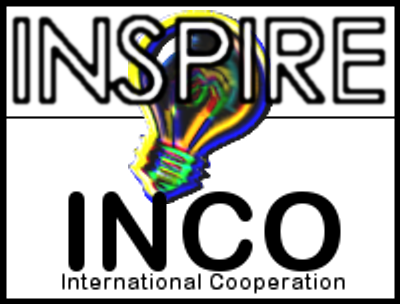
CONCEPTS AND PROJECT OBJECTIVES
The project (INSPIRE-International) aims specifically at fostering mutually beneficial international cooperation between the EC FP7 STREP project 225553 INSPIRE (INcreasing Security and Protection through Infrastructure Resilience; INSPIRE RTD) and the US power grid protection activities and especially the NSF supported GridStat project ongoing at Washington State University (WSU), Pullman, USA. This will also help form the basis of broader co-operations across the EU and US grid-protection activities.
In INSPIRE-International Cooperation we would like to obtain real data from the North American power grid in order to tune and augment the planned validation of the INSPIRE techniques under development. Two key advantages for the EU over this EU-US cooperation being:
- US Grid Data Access and EU-need-driven tunability: The large scale size of the North American Grid uniquely provides data from US electricity providers (AREVA, BBN, ABB-USA, Siemens-USA) not achievable on the currently limited EU grid size. This is a fundamental limitation in the current EU grid data availability. Unfortunately, Critical Infrastructure Protection (CIP) research generally is suffering from the rareness of real data from the existing CIs. This is also valid for the INSPIRE project and its targeted SCADA systems. An international cooperation with a partner that has access to real data (that can be partially tuned and instrumented to INSPIRE specifications) in one of the most known SCADA application domains, i.e. power grid, is needed.
-
NSF GridStat and NASPI Pilot Project Testbed Access: A direct benefit for INSPIRE (& EU SCADA projects) will be to access the experiences on wide-area middleware protocols and communication dissemination experiences obtained over the NSF supported GridStat project at WSU (i.e. the US partner). This will directly help in the verification of the INSPIRE developed communication mechanisms and also help in development of mechanisms that are compatible/complementary across the US and EU SCADA systems. To target compatibility, the NASPI and planned WSU testbeds are planned for public access to EU grid projects and the mutual cooperation across GridStat and INSPIRE will help initiate this.
US Partner-project description
The technical tasks with WSU fall mainly under the listed objective:
- Critical Infrastructure protection
- Secure, dependable and trusted Infrastructures
- Networked Embedded and Control Systems
The particular technical tasks to be performed by the US based GridStat team as part of this collaborator project is as follows:
- Share GridStat’s management plane for interaction with the INSPIRE-developed policy-based management approaches. With the increasing trans-national nature of the grid, this is a big win-win that INSPIRE and GridStat can initiate for the larger grid/CIP communities. The exchange of actual GridStat data form the core basis to get this underway
- Share GridStat-developed mechanisms and discuss potential for complementarities with INSPIRE-developed mechanisms for reliable delivery of control messages for the power grid
- Discuss the potential usage of TCIP (Trustworthy Cyber Infrastructure for Power) research at the various TCIP member institutions
- for interfacing with INSPIRE approaches. TCIP is the NSF center overseen by the NSF CyberTrust project officer Dr. Karl Levitt (started by Dr. Carl Landwehr). It also includes discussing the mutually beneficial uses of GridStat-developed trust management system called Hestia with INSPIRE and the broader EU CIP community
- Share the GridStat and NASPInet approach to recover from accidental and malicious failures and to understand its synergy with INSPIRE-developed techniques for diagnosis and recovery
- Interact to discuss complementary verification and validation (V&V) techniques across GridStat & NASPInet with INSPIRE
INSPIRE-INCO CONSORTIUM
The three project participants are CINI (Consorzio Interuniversitario Nazionale per l’Informatica), TUD (Technische Universität Darmstadt) and ITTI (Instytut Technik Telekomunikacyjnych i Informatycznych Sp. z o.o.) . Three different European nations are represented: Italy, Germany, and Poland. All the participants have been identified as leading organizations in their own field, thus providing the Consortium with high quality capabilities. Across the full set of INSPIRE STREP partners, these represent the organizations whose focussed competences in data collection, verification and validation methods and middleware/ communication mechanisms best match the international co-operation focus themes with the GridStat team at WSU. The cooperation activities of CINI, TUD and ITTI also match the corresponding INSPIRE-STREP activities allowing for best transfer of cooperation results to the full INSPIRE group.
CINI (Consorzio Interuniversitario Nazionale per l’Informatica)
TUD (Technische Universität Darmstadt)
ITTI Sp. Z.O.O. (Instytut Technik Telekomunikacyjnych i Informatycznych Sp. z o.o.)



